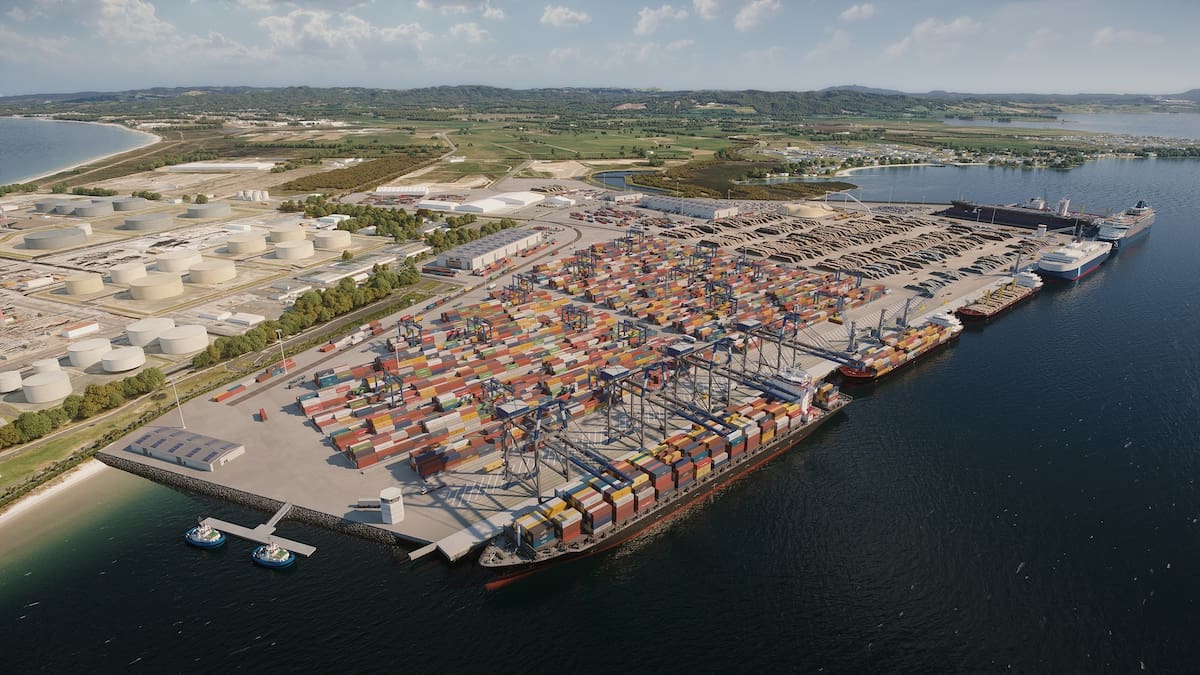Cocurullo said the Northland mayoral forum was renewing its commitment to economic growth after the decision.
The forum comprises Whangārei Mayor Cocurullo, Far North Mayor Moko Tepania, Kaipara Mayor Craig Jepson, and Northland Regional Council chairman Geoff Crawford.
“We need to plan for strategic growth that balances development, environmental protection, cultural values, and land use, so our communities can have a better quality of life both economically and environmentally,” Cocurullo said.
He said boosting transport infrastructure connectivity was one of the key goals in Northland’s forward together strategy.
It includes the Northland council leaders among more than 40 politicians and council officials.
Cocurullo said Northport’s expansion could have boosted Northland’s GDP by an estimated $160 million and created 1500 jobs.
He said Northland’s access to markets remained a challenge – by road, rail, air, or sea.
“There is an opportunity for the Government to improve road and rail infrastructure right now, so the region is better linked to its customers to support economic growth,” Cocurullo said.
Northport said last Wednesday that the Environment Court decision was “deeply disappointing”. It was reviewing the 96-page decision and considering its options.
The company applied to the Northland Regional Council and the Whangarei District Council for resource consents in late 2022 for the project to increase freight storage and handling capacity, and move into a high-density container terminal.
The application was considered over multiple hearings between October 2023 and June 2024 by independent council-appointed commissioners, chairman Greg Hill, Hugh Leersnyder, and Jade Wikaira.
In a decision released last Tuesday, they refused all of the consents sought.
The port’s eastern expansion proposal called for about 11.7ha of reclamation and associated coastal structures for a 250m wharf extension to the east of the current port. It would also have involved 1.72 million cu m of initial dredging and associated disposal, plus ongoing maintenance dredging.
The commissioners acknowledged there were benefits from the proposal.
However, they said the adverse effects on cultural values of tangata whenua, and the loss of recreational values and public access in the coastal marine area, were significant and irreversible.
These effects were not mitigated by the applicant’s proposed conditions, including not sufficiently maintaining public access to the coastal marine area and the recreation opportunities it offers.
The commissioners noted both the cultural values and access issues were of “national importance” under the Resource Management Act.
Tangata whenua Patuharakeke, Te Parawhau and Ngātiwai were all strongly opposed to the application.
Juliane Chetham from hapū Patuharakeke said the commissioners’ decision was vindication of the hapū’s expansion fears and its concern about the original port application 25 years ago.
“We feel like, finally, we are being heard and people are making sense of the cultural effects in a contemporary and modern context: it shouldn’t be economic decisions above all else anymore,” she said.
The proposed expansion would have reclaimed the last stretch of beach on the harbour’s southern entrance, which is used to access Mair Bank and Marsden Bank pipi beds, Chetham said.
“There was going to be no beach there, just a small pathway fenced in between the port fence and channel infrastructure – it was not really adequate, not only for us but for the public as well,” she said.
Northport – and any person who lodged a submission and didn’t withdraw during the consent process – has the right to appeal the Environment Court decision within 15 working days.
In May, Northport chief executive Jon Moore said the company intended to follow the existing resource consent process through to its conclusion.
Meanwhile, the company has applied for the project to be included on schedule two of the Fast-track Approvals Bill — a list of projects that will either automatically go through fast-track consenting or be considered by ministers for fast-tracking.
■ LDR is local body journalism co-funded by RNZ and NZ On Air.




